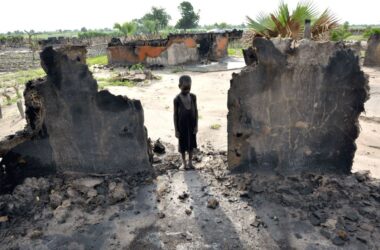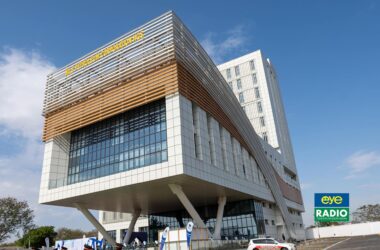Courtesy
Kei Emmanuel Duku
A critical disruption to the South Sudan oil industry is now underway after the Sudanese government and pipeline operators confirmed that systematic drone attacks by the Rapid Support Forces (RSF) armed militia in the ongoing conflict in Khartoum.
According to series of letters seen by this outlet and sent to the Ministry of Petroleum and respective oil operation companies in South Sudan an attack on the Heglig Oilfield and Diesel Depots have affected oil operations and consequently affecting production as such the Khartoum government is left without any option but to shutdown of key oil facilities.
The directive to cease operations was formally issued in two separate communications this month. The first letter, issued on October 24, detailed the RSF’s sustained targeting of vital infrastructure, including the Heglig Oilfield (HGL), diesel depots, pipeline systems, and the two Central Processing Facilities.
In first letter dated October 2025, Dr. Mohieldien Naiem Mohamed Saied, Undersecretary of the Ministry of Energy and Petroleum of the Republic of Sudan, wrote to his counterpart, Hon. Deng Lual Wol, Undersecretary of the Ministry of Petroleum of the Republic of South Sudan, to outline the severe threat.
Dr. Saied confirmed that the Rapid Support Forces (RSF) militia and its backers have carried out a “systematic targeting of energy and oil infrastructure,” which he labeled a terrorist attack. The communication revealed that the Minister of Energy and Petroleum in Sudan had instructed a coordinated, safe shutdown of operations by 2B OPCO, PMDC, GPOC, and SPOC facilities in South Kordofan (Sudan).
He stressed that South Sudan’s crude oil is a “lifeline” for the nation and requested the Juba-based Ministry of Petroleum to issue similar instructions for the relevant South Sudanese-based facilities (OPOC, GPOC, and SPOC) to ensure the safety of personnel and equipment.
The letter noted that the terrorist attacks, carried out by drones, were already “jeopardizing the military’s terrorist actions” and causing an “impending shortage of diesel, aviation fuel, and other essential supplies.” Dr. Saied lamented that the RSF has been “adamant and even emboldened to spread the war and suffering to the entire region.”
Confirming the gravity of the situation, the Bashayer Pipeline Company Ltd. (BAPCO) immediately moved to execute the shutdown preparations.
In a separate letter dated October 25, 2025, Eng. Mohamed Awad, General Manager of BAPCO, formally notified Dr. Lina Zongfa, President of the Dar Petroleum Operating Company Ltd (DPOC) in South Sudan, of the urgent need to shut down operations.
A similar letter was also sent to Dr. Saied and Eng. Mohamed Awad Elteib, Deputy General Director of the Ministry of Energy and Petroleum of the Republic of Sudan, confirming the RSF drone attacks and the anticipated impact on their “Processing and Transportation System operation.”
As a direct consequence, BAPCO instructed DPOC “to start the preparation for smooth shutdown of the oil field until further notice,” signaling an immediate cessation of activities at the facilities that pump crude oil northwards through Sudan.
The immediate crisis of an oil field shutdown is a direct result of the ongoing conflict between the Sudanese Armed Forces (SAF) and the Rapid Support Forces (RSF) that erupted in April 2023.
South Sudan, which gained independence from Sudan in 2011, is landlocked and relies entirely on Sudan’s infrastructure to export its crude oil. All of the crude produced in South Sudan is transported via pipelines northwards through Sudan to Port Sudan on the Red Sea for international export.
This oil revenue accounts for approximately 90% of South Sudan’s national budget, making the integrity of the pipeline a matter of national survival.
The pipeline infrastructure, including the pivotal Heglig Oilfield and the Central Processing Facilities (CPFs), are geographically located in conflict zones within Sudan. The RSF’s tactic of using drones to target these assets is considered by the Khartoum government to be a deliberate and strategic effort to cripple a shared economic resource.
According to oil experts from Sudan, the RSF attacks prevent operating companies (like 2B OPCO, PMDC, GPOC, SPOC, and DPOC) from maintaining safe operations. This leaves the governments with no viable option but to perform a controlled, safe shutdown to prevent catastrophic environmental and structural damage to the facilities, thereby halting the flow of oil and severing Juba’s primary revenue stream.
By targeting the oil infrastructure, the RSF not only disrupts Sudan’s own energy supply but also directly threatens to bankrupt South Sudan—a country whose economy is already struggling with hyperinflation, natural disasters, and conflicts.




